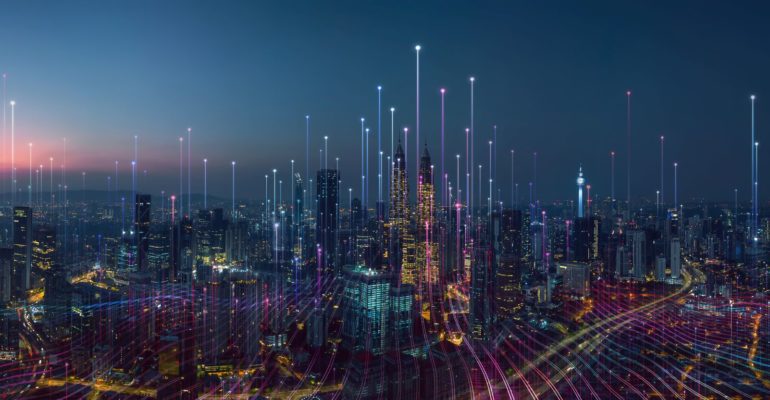SI United Nations (UN) Representative, Evelyne Para, brings us the third instalment in her series of blogs about how Non-Governmental Organisations (NGOs) are responding to the COVID-19 pandemic. This blog focuses on Communication, Information, and Culture.
“To face the consequences of the global COVID-19 crisis, the mobilisation of local associations and NGO partners of the United Nations Educational, Scientific and Cultural Organisation (UNESCO), is essential. This strengthening of partnerships will help us to construct future post-COVID priorities defined by UNESCO in several areas.
In two previous blogs, I presented the results of the reflections of NGOs in the field of Human and Social Sciences (SHS), and also Education. In this blog, I will be discussing the topic of Communication, Information, and Culture.
Priorities about Communication and Information
Social networks and new technologies have played an important role in the COVID-19 response, to better inform about the pandemic. Entire populations felt the need to unite through social media. New technologies have also enabled NGOs to continue supporting populations at a distance, adapting and implementing mutual aid platforms. By organising, for example, numerous conferences via social networks, NGOs have contributed to publicising instructions for protecting oneself and limiting the spread of COVID-19, and have also been able to continue supporting various local activities and projects.
NGOs also defended the urgency and the interest of taking special and lasting measures to fight against a digital divide, in order to guarantee all populations, including those in remote regions and rural areas of poorer countries, availability and access to information. For example, the support of initiatives such as that of FAO Dimitra have stimulated collective action and participation of villagers, in particular women, around development activities in isolated communities of Niger and Democratic Republic of Congo.
Unfortunately, COVID-19 has also fuelled the proliferation of ‘fake news’, and of mistrust and nationalism. In response, we must all reaffirm our commitment to scientific research, quality information, and to the development of critical thinking for all people from an early age.
From the onset of the health crisis, NGO partners of UNESCO denounced rumours and conspiracy theories about COVID-19 that proliferated online. This fake news threatens people’s health, discredits public action, delegitimises preventive measures, and triggers social tensions. The spread of coronavirus has given rise to a pandemic of disinformation and misinformation, affecting societies already fractured by an unprecedented crisis. Knowing what information is factual and what is not during a health crisis is essential.
About this topic, UNESCO has published useful learning resources, offering simple techniques to help people navigate the flood of information published regarding COVID-19 in the media or online.

Image from UNESCO’s Visual Resources,
Priorities about Culture
The growing pandemic affects all cultural fields, including tourism, economic and social benefits. While this crisis reduces the precarious livelihoods of artists and cultural workers, it has raised awareness of the essential role of culture, not only as an economic contributor, but as a unifying force for all. In these times of confinement and social distancing, NGOs quickly recognised the importance of Arts and Culture for psychological well-being and for health more generally, but also as a real tool for resilience.
Many museums and World Heritage sites have transferred their activities online in order to ensure that everyone can stay in touch with the heritage and culture that connects them to their humanity. One example is the virtual living heritage platform, created by Google Arts & Culture in partnership with UNESCO, offering virtual exhibitions with thousands of photographs, street shots, stories and written testimonies.
UNESCO also organised numerous debates online, promoting the development of policies and measures necessary to overcome the crisis. For instance, UNESCO launched a global campaign on social media entitled “ResiliArt” to support artists and ensures access to culture for all.
Conclusion
More than ever in the post-COVID world, we will need to combine the multiple intelligences that are in ourselves: rational, emotional and spiritual intelligence. Will we be able to use new technologies, Arts and Culture, in order to be well informed, to communicate better with others, to bring a balance to the world and to find new reasons for hope? Now it’s up to us – NGOs and representatives of civil society to witness it!
The next and last instalment of this blog series on “Solidarity NGOs facing the pandemic” will be devoted to promoting the action of NGOs defending ecological reconstruction in the post-COVID world.”


Very happy to find this app I’m Kaira Manangwa a masai warrior who lives at Engaruka village 4 hours driving from Arusha Tanzania I’m dealing with my society maasai girls and women last weekend I just find one man who bit he’s wife now I have photos of the women and marking which she got from a stick I will try to go to the police station a lot of men don’t respect women I’m real facing difficult situation too because I’m only one who trying to educate people at my village about female genital mutilation it’s not easy but I’m focusing without getting tired I do love my culture too but this things I’m changing slowly.